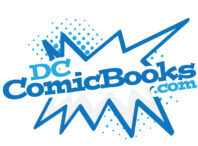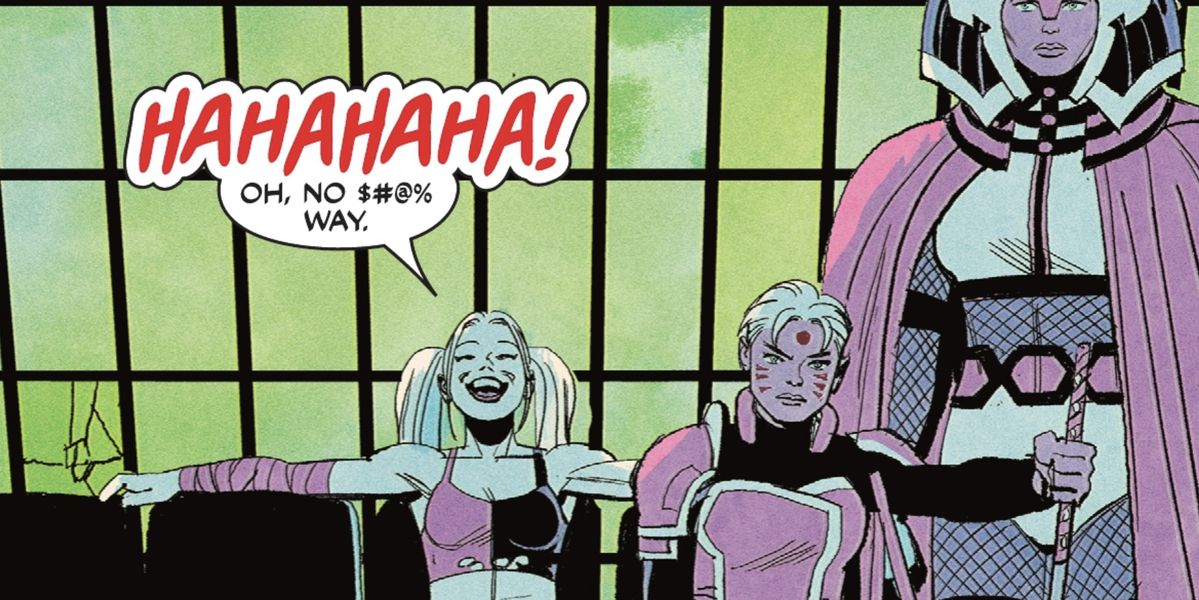Writer Kelly Thompson knew that the most controversial member of her Batman-adjacent Birds of Prey team would be Harley Quinn. That would seem strange to anyone familiar with the movie of the same name, which owes its existence to Harley Quinn actor Margot Robbie. Robbie parlayed her clout as a Suicide Squad breakout into a girl gang film, and as it was DC’s only all-female superhero team, the Birds of Prey was the natural fit.
But here’s the thing: Harley has never actually been on the comic book version of the Birds of Prey, until now. And despite the movie precedent, Thompson still expected Harley’s spot on the team to cause the biggest commotion. “Harley is definitely the most divisive,” she told ComicBook.com in July. “She’s sort of got the most fans, but she also has the most haters.”
And if you’re a Harley Quinn hater, you probably feel like you’re seeing her everywhere. There’s her self-titled cartoon show, wrapping up its fourth season, as well as her ongoing self-titled comic series, her monochrome anthology series Harley Quinn Black + White + Red, her guest appearances in series like Poison Ivy and Dark Knights of Steel, multiple tie-in miniseries set in the show’s continuity, and tons of DC’s YA graphic novels and Black Label books.
But if this week’s actual comic Birds of Prey #1 proves anything, it’s that there’s still plenty of things to say about Harley Quinn. And it said it in maybe the best first issue of a new series I’ve read all year.
For Birds of Prey, Thompson is working with artist Leonardo Romero and colorist Jordie Bellaire, the creative team that made the cult hit Hawkeye (no, the other one). That familiarity is paying dividends. Romero’s clear lines and distinct silhouettes spark against Bellaire’s neon marker washes that don’t much care if they pop out of the lines sometimes. The approach gives the whole book a retro, four-color printing feel right out of last-century comics.
It’s a treat for the eyes from back to front, as Romero’s fight choreography — an important skill for a book full of reformed ninjas and alien swordswomen — is given several brilliant showcases. And all that action doesn’t come at the expense of everything else, either. In just 28 pages, Thompson makes sure we know everything we need to about these Birds of Prey, and more importantly, just the right facts to want to know what happens next.
Our story is a classic: Black Canary’s estranged sister is in secret, deadly danger, and she’s got to put a secret, near-deadly team together. She gets her top draft picks: Batgirl (the one who was raised as a silent assassin), Big Barda (alien warrior demigod), and Zealot. The problem, raised in the opening pages of the book, is that Canary needs someone “in the ‘$@#% your pants’ category of dangerous but also impeccably trustworthy and good.” She winds up having to settle for one out of three, and she’s not happy about it.
That’s because Black Canary is a Harley Quinn hater — and in a fun injection of tension, Birds of Prey knows that she’s wrong.
Canary, the book’s most stand-up hero, the one with a legacy reaching all the way back to the Justice Society, isn’t willing to trust Harley. But Harley? The reformed henchwoman murderess in ride-or-die love with full-on supervillain Poison Ivy? All she needs to hear is that the job is to rescue a 16-year-old girl.
Canary isn’t willing to trust Harley with her sister, but Harley’s willing to trust all of them for a complete stranger.
The comic lore here, which Thompson leaves succinctly unsaid, is that all of Canary’s other picks have skeletons just as big as Harley’s in their own closets. Zealot is a millennia-old alien who’s dating a mercenary; Batgirl was raised to murder with her bare hands; and Big Barda used to be the foremost warrior of a god of fascism. At what point does Harley get to be redeemed like them? Is it when she disavows her ecoterrorist girlfriend? Is it when she acts like a hero? Talks all serious like a hero? Shows the proper respect to real heroes?
This is the modern question of Harley Quinn, one that the Harley Quinn cartoon, and her own series, and her appearances in Poison Ivy, and many others, are wrestling with. If Harley isn’t a villain anymore, but Poison Ivy is, what has to change about Ivy’s calling? How long can we have Harley doing heroics before she stops being an outsider to the superhero community? How does the caustic bite, manic tone, and survivor’s grit that made Harley compelling in the first place survive that transition? And if she never becomes an insider, what does that say about the superheroes giving her the cold shoulder?
Not great things, says Birds of Prey #1. But that’s the thing about #1 issues — they don’t have to answer questions, they just have to raise some interesting ones. Back in 2020, Yan and Robbie weren’t satisfied with just one bite at the Harley Quinn apple either, and as of last year, James Gunn seemed confident that Harley would be a part of the new direction of DC Films as well. But while Hollywood waits to dig into Harley’s potential, DC Comics is busy doing the work.
Birds of Prey #1 doesn’t just set up an all-female crack team on a secret mission with a wild-card recruit; it grabs the one heroine in DC canon who most ripe for asking, “But wait… Why do we even think she’s a wild card?” and sticks her in with some of the most atonement-focused women in the setting. Harley is far from the only thing that Birds of Prey has going for it, with Romero’s action and Bellaire’s colors, but she’s the secret ingredient that makes the whole book sing. Haters to the left.
Kelly Thompson and Leonardo Romero deliver one of this year’s best issues Read More

